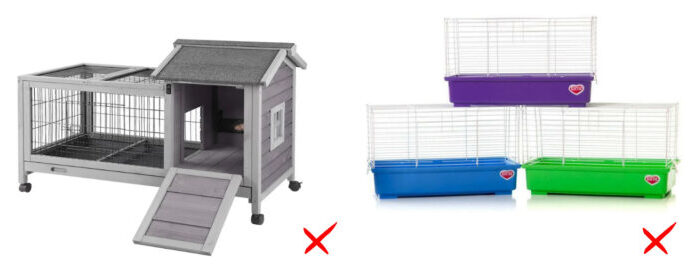RESCUE is not a verb. It is a promise.
ADOPT A RESCUE GUINEA PIG
At Southeast FL Rabbit Rescue, we believe that every rabbit and guinea pig deserves a loving forever home. Our rescue is 100% volunteer-run and operates entirely through donations and the kindness of our foster families. When you choose to adopt a rescue rabbit or guinea pig from us, you’re not only saving one precious life but also creating an opportunity for us to rescue another animal in need. Your support is invaluable, and we want to say THANK YOU!
All of our guinea pigs are spay / neutered and receive annual wellness exams from experienced exotic veterinarians to ensure that they are healthy. They are housed in loving foster homes where they receive daily socialization.
I AM A
FOREVER
GUINEA PIG

NOT A
- until you have to move
- until you have a baby
- until your kids get bored
- until you have no time
- until I get too old
GUINEA PIG
Our adoption process is designed to ensure that every home is set up for furever success and is well-prepared for their new pet. The approval timeline can vary depending on how quickly applicants complete the steps below.
Typically, it takes 1-2 weeks from the start of the process until you can welcome your new guinea pig(s) into your home.
STEP 1 | APPLICATION
- Submit Adoption Application.
- Attend an Adoption Orientation / Guinea Pig 101 class via Zoom (1 hour).
- Complete the Post Guinea Pig 101 Questionnaire.
STEP 2 | PREPARATION
- Schedule an in-person Meet & Greet.
- Order Required Supplies.
- Set-up an Enclosure for your new friend(s) and send us a pic.
STEP 3 | ADOPTION
- Schedule a Home Visit / Drop off.
- Complete a minimum 4 week Foster to Adopt trial.
- Pay the Adoption Fee: single guinea pig: $125 | bonded pair: $200.
TO APPLY:
- Must be 21 years of age or older and provide a driver license or state ID card.
- Everyone in the household (spouses, parents, roommates, etc.) will need to agree to and participate in the adoption process.
- NEVER SOLO: Guinea pigs are extremely social animals and should be kept in a herd with at least 1 other guinea pig.
- INDOORS ONLY: Guinea pigs should be housed and kept indoors at all times. Taking them outdoors is not only stressful for them but exposes them to many dangers, such as: escaping, predators, parasites and heatstroke.
- NO: patios, porches, backyards, or walks/outdoor playtime.
- CENTRAL: The enclosure should be in an adults bedroom or a central, high-traffic area like the living room.
- NO: laundry room, kitchen, garages, patios, etc.
MINIMUM HABITAT SIZE:
2ft x 4ft, 8sq ft 1 or 2 guinea pigs
2ft x 5ft, 10sq ft 2 or 3 guinea pigs
2ft x 6ft, 12sq ft 3 or 4 guinea pigs
A pair of guinea pigs will need a minimum 2ft x 4ft, 8sq ft living space when enclosed, preferably 2ft x 5ft. For each additional guinea pig add 2-4 sq ft to their living space to maintain a healthy and harmonious environment and prevent fighting and bullying due to resource guarding.
Cages and hutches DO NOT provide enough room for guinea pigs. This can lead to frustration and stress which presents as pacing, excessive squeaking, loud cage chewing and bar rattling, and aggression towards cage mates due to resource guarding. Guinea pigs that are confined to small cages often become withdrawn or even depressed, losing interest in food, play, and interaction. Because they do not have enough room to exercise they are prone to obesity, heart disease, and infections. Guinea pigs kept in hutches also frequently develop bumble-foot.

1 | Habitat
minimum: 2ft x 4ft (8sq ft); preferred: 2ft x 5ft (10sq ft)
- Habitat Liner | set of 2
- Litter box or Kitchen Area (optional) | paper based litter
- Water Bottle | 1 per guinea pig
- Food Bowl | 1 per guinea pig
- Hidey House | 1 per guinea pig
2 | Diet
- Hay | Alfalfa for Juveniles or Timothy for Adults | min. 40oz
- Pellets | Oxbow Adult or Young Adult Food
- Greens | Spring Mix
- Vitamin C Supplement
- Treats
3 | Toys, Enrichment & Grooming
- Grooming Supplies | nail clippers and brush or comb
- Enrichment | Chew toys, snuffle mats, tunnels, puzzle toys, etc.
4 | Carrier
minimum: 12in x 18in

THINGS TO CONSIDER BEFORE ADOPTING A GUINEA PIG
Before getting a guinea pig, think about how they will fit into your current lifestyle. Below are some important things to consider:
How Long Do Guinea Pigs Live?
Guinea pigs usually live 5-7 years.
- Are you prepared to commit to a pet for the next 7 years (or more)?
- How do you foresee your life changing in the next few years?
How Much Do Guinea Pigs Cost Per Year?
Lifetime Cost $6,000-14,000
Monthly Costs $60-120 The ongoing monthly cost of bedding / litter, hay, food, treats, toys, and fresh produce, for two guinea pigs is approximately $60 to $120.
Annual Costs $1,000-1,750 Guinea pigs should have an annual wellness exam with an experienced exotic veterinarian every year, this costs around $100 to $150 per guinea pig. Therefore, the total annual cost for owning two guinea pigs is $1,500 and $2,000; this includes the monthly costs of food and other supplies as well as their annual check-up.
In the event of a medical emergency, which is unfortunately common as guinea pigs are extremely fragile, the cost of emergency veterinary care can be $500-700 or more.
- Do you have $60-120 of disposable income per month to spend on your guinea pig’s supplies?
- If your guinea pig becomes sick are you able to pay $500-$700 to take them to the vet today?
Children & Other Pets
- Are you adopting a guinea pig for a child or teen? Will you take over if they get bored or when they go to college?
- Are the children gentle and calm or do they play and interact roughly? Do they generally follow directions and complete chores or do they need frequent corrections and reminders?
- Are you planning to have children in the future?
- Do you have a predator pet such as a cat or a dog in your home or would you like to have a cat or a dog in the future?
FAMILY PLANNING: Pregnancy, newborn care, and the evolving interests of children can significantly impact the time and attention you can devote to a pet. If you are planning to start or expand your family in the future, consider if you will still be able to dedicate 2-4 hours per day to caring for your guinea pigs. Check in with your family to see if they are willing to step up and help out with pet care in the future if needed.
CHILDREN: There is a common misconception that guinea pigs are pets that children can take care of on their own. In reality, children can help with some of the care but a majority of the daily care and mental load will need to be performed by an adult. Also consider how well your child currently completes their chores and school work. Are they diligent and responsible or do they wait until the last moment and need frequent intervention and reminders? Each year hundreds of guinea pigs are dumped outside or rehomed when families realize just big of a responsibility they are.
And while children may be excited about guinea pigs at first, this enthusiasm often fades after a few weeks or months. As kids grow older, their focus naturally shifts to friends, school, extracurricular activities, and sports; leaving guinea pigs neglected.
OTHER PETS: It is also important to consider other pets before bringing home a guinea pig. As prey animals, their flighty movements and high pitched squeaks will trigger predatory instincts in cats and dogs. Even well-meaning play can be terrifying and dangerous for guinea pigs due to their small size and fragility. To ensure their safety, guinea pigs should be kept in a separate room, with multiple barriers such as closed doors and pet gates to protect them from potential encounters with other pets. This will create a secure environment where guinea pigs can thrive without the stress of constant exposure to predators.
Can You Have Just One Guinea Pig?
No.
Guinea pigs are extremely social creatures and being alone is confusing, lonely, and distressing for them. They thrive in pairs or small herds. With a friend of the same species, guinea pigs share grooming, play, and sleep side-by-side, creating a deep bond that fulfills their need for companionship. Neither the most loving and attentive pet owner nor a pet of other species can replace this.
Single guinea pigs often display signs of loneliness and stress, such as excessive squeaking, pacing, or hiding. Left alone too long, they may become withdrawn or even depressed, losing interest in food, play, or interaction. The effects of isolation on guinea pigs is similar to the adverse effects of isolation observed in other social animals like orcas in captivity or humans in solitary confinement
DID YOU KNOW? It is illegal to own just 1 guinea pig in Holland, Switzerland, Sweden, Germany and Austria.
Do You Like To Travel?
- Would you like to take a week-long cruise or stay with family over a long weekend?
- Do you have a trusted friend or family member who could help care for your guinea pig while you’re away?
- Is there an exotic vet, local rescues or pet care services that you can count on for boarding?
It’s important to assess whether your travel goals are compatible with the commitment needed to care for guinea pigs and if you are willing to adapt your plans to ensure they receive proper care. Guinea pigs require daily care, including fresh food, water, and spot cleaning of their enclosure. They cannot be left alone for more than 24 hours without risk to their health and well-being, making it necessary to arrange for their care during any trip.
Finding a pet sitter can be tricky and boarding with a rescue or a vet can cost $25-40 per day.

